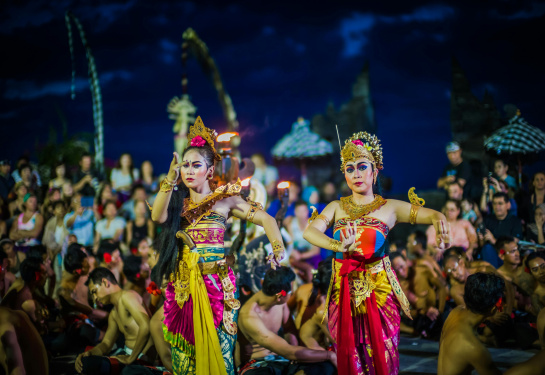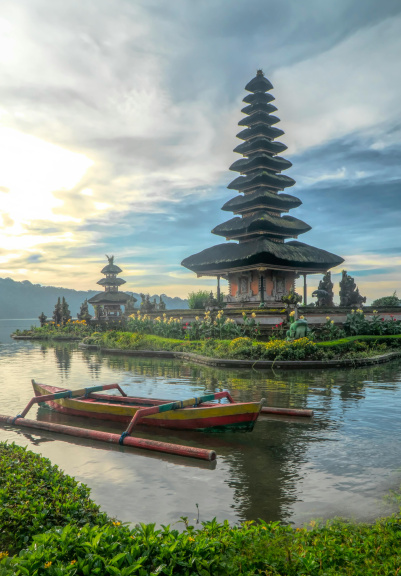Nyepi - Balinese New Year and Day of Silence
Nyepi - Balinese New Year and Day of Silence
Bali, the jewel of the Indonesian archipelago, boasts a number of unique traditions and spiritual rituals. One of its most significant celebrations is Nyepi, which is considered the Balinese New Year. This holiday falls on the first new moon day of the Saka calendar each year and is considered one of the most unique New Year ceremonies in the world.
 Nyepi literally means “silence,” and on this day, the island of Bali comes to a complete standstill. Nyepi is a time of introspection, spiritual cleansing, and restoration of harmony. Locals do not work, shops and public institutions are closed, and even the airport is closed. The streets are deserted, and tourists are expected to respect local traditions.
Nyepi literally means “silence,” and on this day, the island of Bali comes to a complete standstill. Nyepi is a time of introspection, spiritual cleansing, and restoration of harmony. Locals do not work, shops and public institutions are closed, and even the airport is closed. The streets are deserted, and tourists are expected to respect local traditions.
Rituals and Celebrations Before Nyepi
Although Nyepi itself is a time of silence and contemplation, the days leading up to it bring exciting and spectacular rituals.
Melasti Ceremony
A few days before Nyepi, the Balinese hold a ritual purification ceremony. During Melasti, sacred objects from temples are taken to the sea or rivers to be washed and spiritually cleansed. This purification is also important for the community, as it promotes both physical and spiritual purity.
Tawur Kesanga and the Ogoh-Ogoh Parade
On the eve of Nyepi, the Balinese hold large street parades in which giant, demonic puppets, called Ogoh-Ogoh, are carried through the villages. These huge, often terrifying-looking figures symbolize evil spirits. At the end of the procession, Ogoh-Ogoh effigies are often burned to ward off evil spirits and cleanse the island for the new year.
Nyepi Rules and Significance
On Nyepi Day, the Balinese follow four main prohibitions:
- Amati Geni – No fire or lighting (including electric lights).
- Amati Karya – No work.
- Amati Lelungan – No travel or transportation.
- Amati Lelanguan – No entertainment or worldly activities.
These rules are intended to allow people to engage in self-reflection, meditation, and spiritual purification. According to tradition, by shrouding the island in complete silence for a day, evil spirits believe that Bali is deserted, so they do not bother the residents.
How does it affect tourists?
Although Nyepi is primarily important to the Balinese, tourists can also experience the special atmosphere of the holiday.
The airport is closed for the entire day, so there are no flights arriving or departing. Restaurants and shops are closed, but hotels provide essential services. Tourists are advised to stay in their accommodations and respect local regulations.
Hotels often operate with reduced lighting to match the island's silence.

The Ceremony After Nyepi - Ngembak Geni
On the day after Nyepi, life resumes, and the Balinese begin the year with a ceremony called Ngembak Geni. On this day, families and friends visit each other to discuss the past year and make new plans. Communities make peace with each other, and many visit temples to pray for success in the coming year.
Why is Nyepi special?
Nyepi is a unique spiritual experience for both locals and visitors. In a world where noise, rush, and constant information flow are almost unavoidable, Bali shows us how valuable silence and a deeper connection with ourselves can be. This holiday is a reminder not only to the Balinese, but to all of us, that sometimes we need to stop, look inward, and reevaluate our lives.
If you ever visit Bali during Nyepi, it is worth preparing in advance and respecting this special tradition. While it may seem challenging at first to experience a day of silence and restrictions, many people return to this magical island again and again for this very experience.